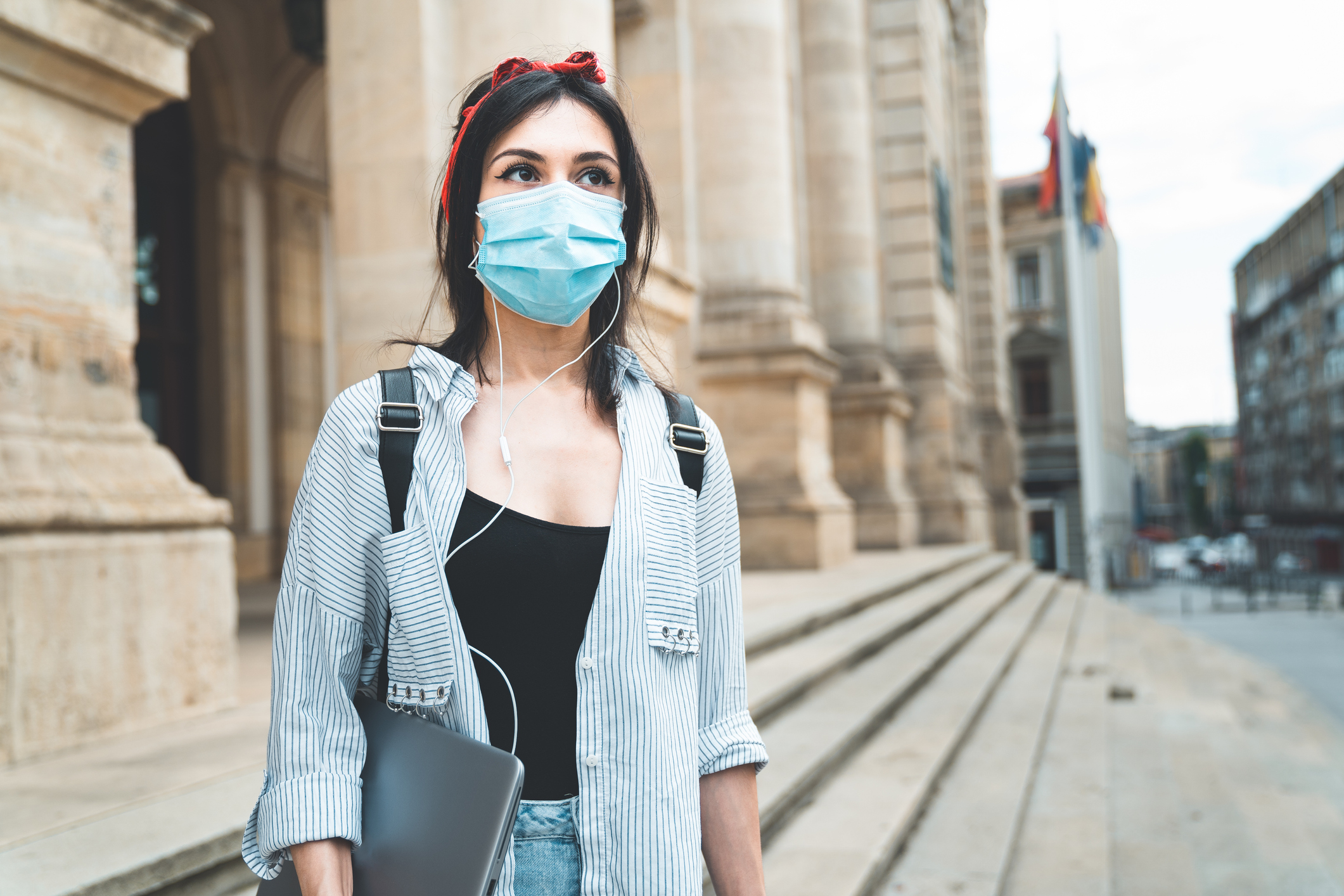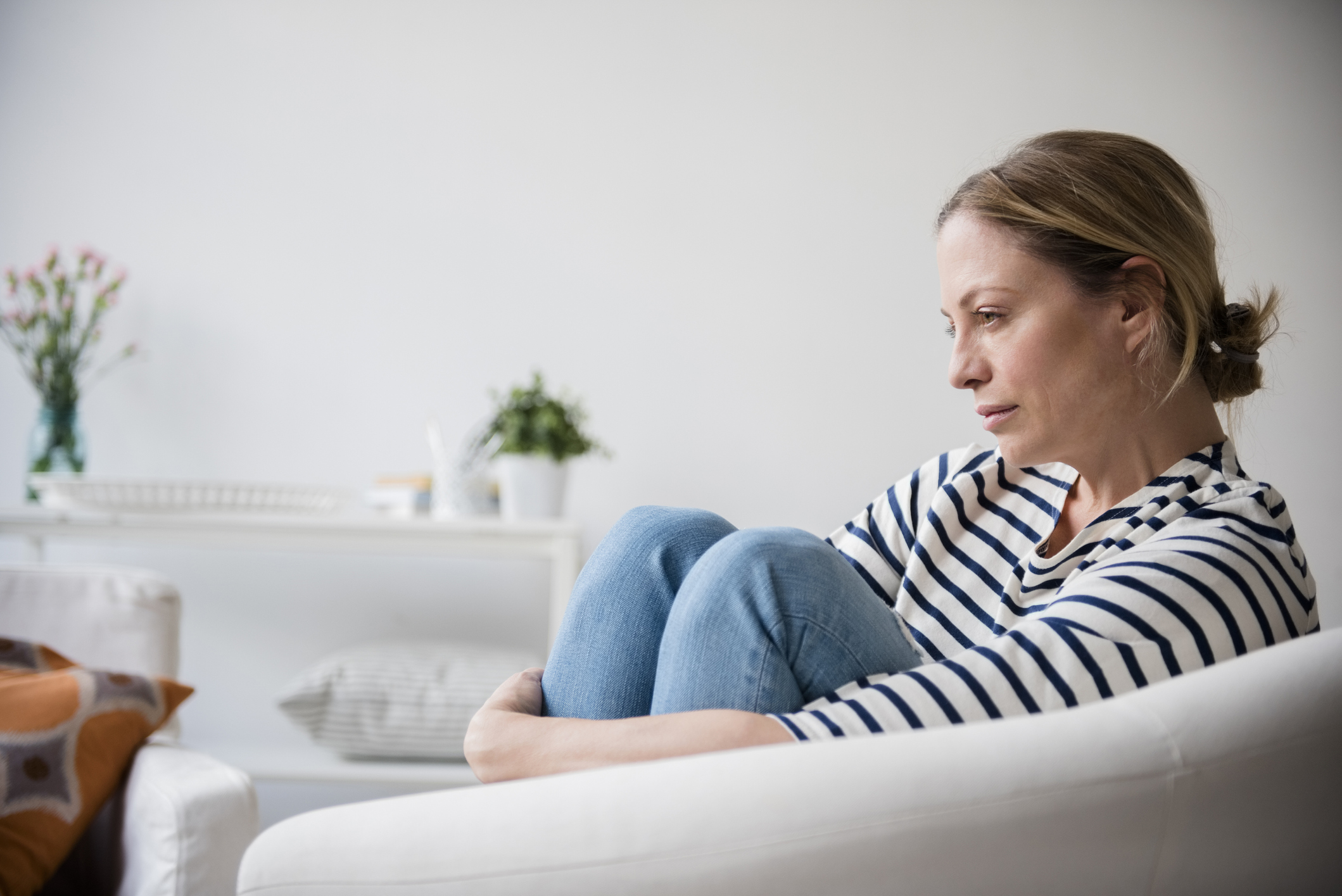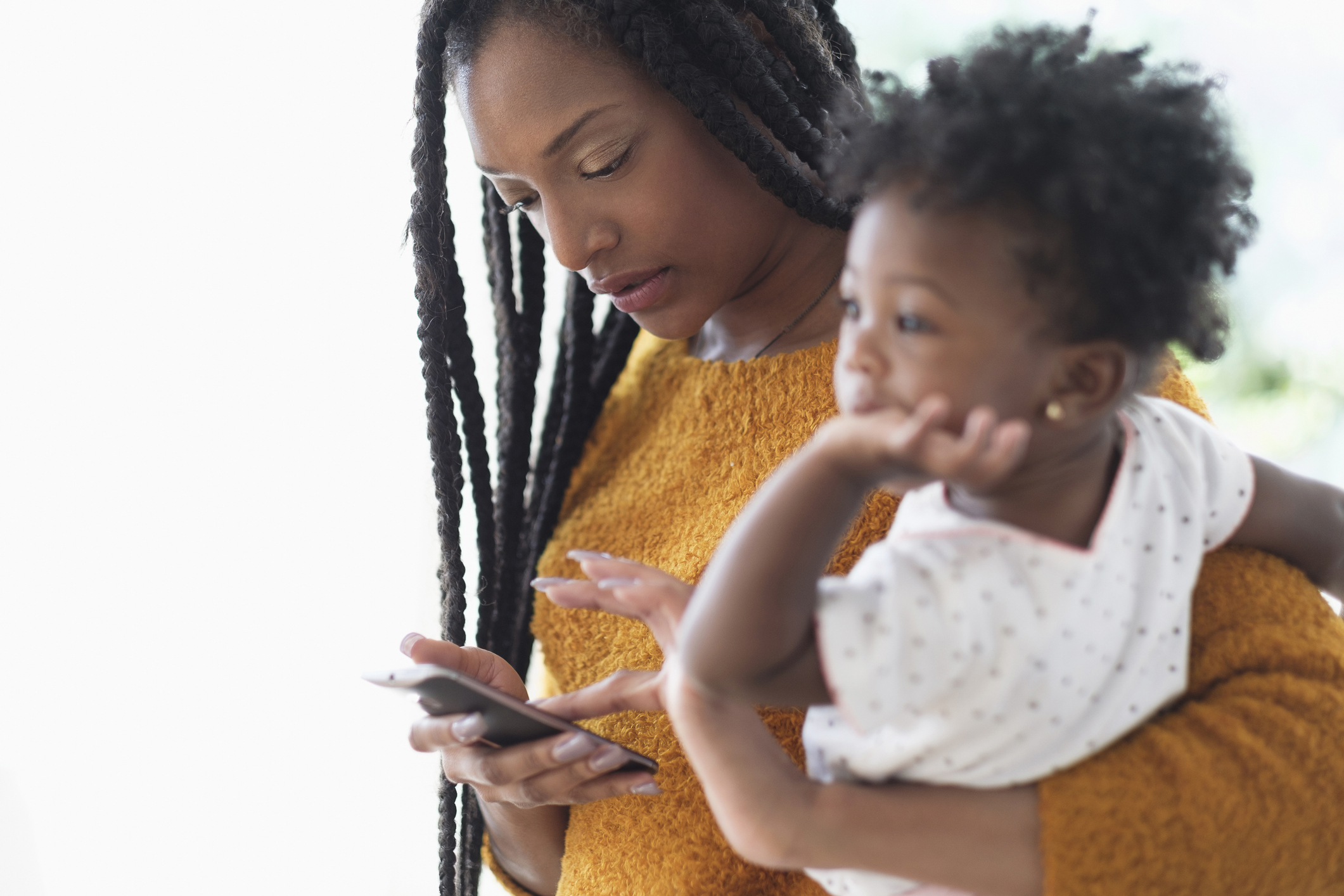Ever heard of Post Pandemic Stress Disorder? Discover whether it's affecting your day-to-day
Between 30% to 50% of you feel some degree of anxiety and stress about life post pandemic.

Between 30% to 50% of you feel some degree of anxiety and stress about life post pandemic.
Question: is all the socialising and 'back to normality' feeling a little overwhelming right now? There's actually a phrase for that feeling - namely, post pandemic stress disorder - and doctors are keen to educate you on what it is, and why it might be affecting your day-to-day more than you know.
Take some recent stats, as an example: some studies are suggesting that between 30% to 50% of you feel some degree of anxiety and stress about life post pandemic. Re-entry anxiety is very real, and for good reason.
"Post traumatic stress following pandemics is not a new concept," shares according to doctor Mariam Adegoke, GP and founder of Adegoke Wellness Clinic. "Research does show an increase in people suffering from PTSD following pandemics," she goes on.
For a full guide to the trauma you might still be experiencing as a result of the events of the past year, and specialist advice on reducing and managing your symptoms, keep reading.
What is Post Pandemic Stress Disorder?
According to psychotherapist, former NHS clinical lead and Sunday Times best selling author Owen O’Kane, it's a new term directly referring to the trauma many are experiencing at the hands of the pandemic.
"Most people have heard of PTSD, or Post Traumatic Stress Disorder, which can occur after someone has experienced a traumatic event in life," he shares.
Celebrity news, beauty, fashion advice, and fascinating features, delivered straight to your inbox!
"PPSD, or Post Pandemic Stress Disorder is a phrase I’ve coined that is directly linked to the traumatic impact of the pandemic," he continues.
Although it's important to point out that it's not yet recognised as a formal condition, O'Kane is petitioning for it to become one. "Many people will have experienced varying degrees of trauma over the past year: loss, isolation, illness, being unable to say goodbye to loved ones, business failures and horrific news headlines daily. The list is endless," he explains.
"My concern is that the invisible nature of a pandemic may see trauma minimised, whereas an event like a war would normalise trauma."

What are the main symptoms of Post Pandemic Stress Disorder?
According to doctor Adegoke the symptoms of PPSD are very similar to that of PTSD, which characterised by intrusions (nightmares, repetitive and distressing images) and flashbacks, with people feeling as if they are reliving their trauma.
"People also experience increased levels of anxiety and depression, which leads to symptoms such as insomnia, changes in mood, nightmares and hyperarousal (feeling constantly on edge)," she shares.
As those behaviours present themselves, they can trigger other issues, too. "The presence of these symptoms can lead to avoidant behaviour - people avoid certain places or people that remind them of the trauma, becoming isolated and withdrawn."
Physically, you could experience symptoms of anxiety such as chest tightness, racing heart, sweating, shaking and shortness of breath. "This may become especially apparent when people are reliving episodes or are in a situation that triggers their anxiety."
What might be triggering PPSD right now?
There are a whole load of factors that could be aggravating the disorder as we ease back into normal, O'Kane believes. Think:
- Adjusting back to normal life routines
- Uncertainty of covid and other variants
- Financial issues
- Fear around future instability
- Anxiety around social interactions
- Anxiety about returning to workplaces or crowded spaces.
- Exhaustion from the events of the last year
- Making sense of a new way of living post pandemic.
Any of these sound familiar or hit home? "It needs to be recognised that for a full year people have been told to stay at home because of a potentially life-threatening virus. It is an unrealistic expectation to assume that this readjustment back to ‘normal’ will be smooth and without real challenges," he explains.

5 tips for managing stress and wellbeing post-pandemic:
1. Recognise you've lived through a challenging period
And accept that you may feel a little destabilised for a period, shares O'Kane.
"Talking this through with someone you trust will help you begin to process the events of the last year," he shares. "Always seek professional support if you are struggling to cope or symptoms feel overwhelming. Trauma responses often need professional support, and this is crucially important to recognise."
2. Plan how you will readjust to normal life
There's no shame in opting for a pace that is comfortable for you. "Adapt a phased approach and don’t attempt to submerge yourself too quickly," O'Kane recommends.
Top tip: Create a daily self-care schedule to help you reset, he advises. "This might include designated time out periods, walks, exercise, meditation or anything that helps you switch off. This will help you feel a greater sense of control and allow the mind time to heal." Let our guide to self care ideas help.
3. Remember times when you have coped and survived
You know, those dark periods where you didn't think you'd make it through, but did? Know this: you can do it again.
4. Reclaim your life
This one's worth noting. "By gradually reengaging with activities, people or events that excite and motivate you, you can reclaim normality," O'Kane shares.
"Looking ahead with a degree of hope is an important part of recovery after any traumatic time," he continues.
5. Treat the underlying cause
It isn’t enough to treat symptoms, O'Kane shares. "The Covid-19 pandemic has been traumatic, and we can’t minimise or ignore that - it would be a travesty to do so."
Doctor Adegoke agrees, adding: "It’s okay not to be okay, if you are struggling, contact your GP as your first port of call. You can also self refer for free NHS psychological therapy services on the NHS website."
The Samaritans are also available to talk 24/7 on 116 123, no matter have big or small your problem.

Ally is Marie Claire UK's Senior Health and Sustainability Editor, a well-regarded wellness expert, nine-time marathoner, and Boston Qualifying runner.
Utilising her impressive skillset and exceptional quality of writing, she pens investigative, review and first-person pieces that consistently demonstrate flair and originality.
As well as writing, Ally manages a team of freelancers, oversees all commissioning and strategy for her pillars, and spearheads the brand's annual Women in Sport covers, interviewing and shooting the likes of Mary Earps, Millie Bright, and Ilona Maher. Shortlisted for three BSMEs and winning one in 2022, Ally lives and breathes her verticals: her eye for a story and connections within the wellness sphere are unrivalled. Follow Ally on Instagram for more.
